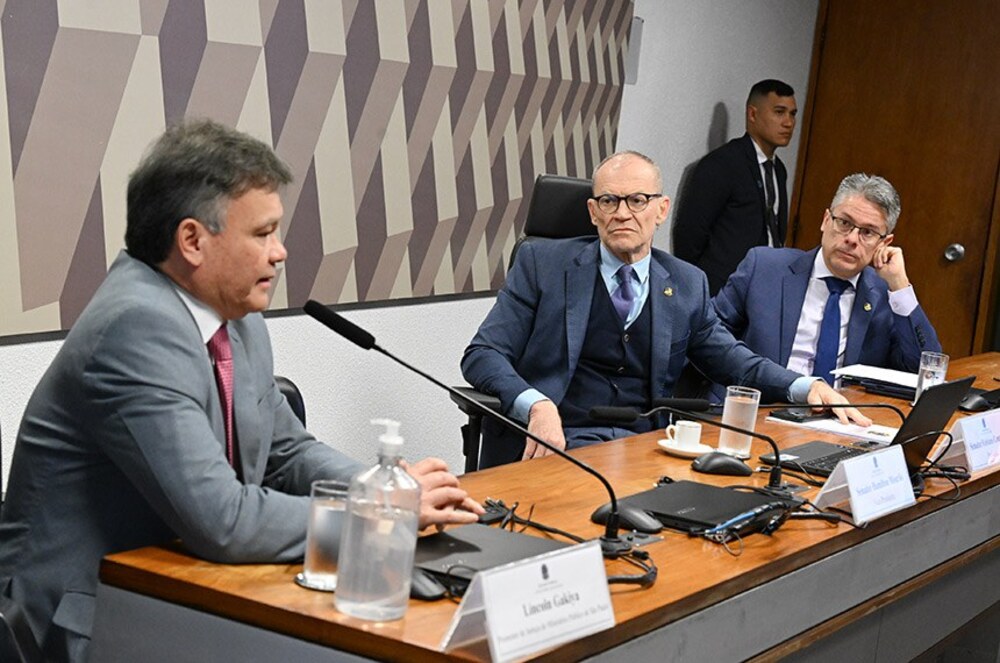Brazil: CPI Hearing Points to State Failures in Combating Organized Crime

Brazil – November 26, 2025 – www.zonadeazar.com The meeting of the Parliamentary Inquiry Commission (CPI) on Organized Crime held this Tuesday (25) focused the debate on a central point: crime does not advance solely by its own strength, but because it finds loopholes, lack of oversight, and structural fragility within the State.
This perspective, shared by members of the commission and by São Paulo State Prosecutor Lincoln Gakiya, should guide the group’s effort to map gaps in the prison system, financial infiltrations, and institutional disputes that hinder the fight against criminal factions.
Commission president Senator Fabiano Contarato (PT-ES) stated that organized crime has become a State-level problem, capable of corrupting public policies and capturing institutions. For him, the commission’s central goal is to produce reforms that address this structural vulnerability.
— Criminal organizations prosper when they find loopholes and conveniences within state and financial structures. Our role is to identify these flaws and propose concrete solutions — he said.
Expansion of the PCC
Gakiya presented a summary of the evolution of the Primeiro Comando da Capital (PCC) over the past two decades. He highlighted that the group emerged in the São Paulo prison system and expanded nationally and internationally as failures accumulated in public security and prison management.
— No criminal organization grows without the absence of the State. Decades of neglect allowed the PCC to reach a mafia-like stage, operating in all Brazilian states and in 28 countries — he stated.
The prosecutor explained that the faction developed a sophisticated money laundering structure, infiltrating the financial system, companies, and fintechs.
— Fintechs operated like banks without proper oversight, allowing the creation of opaque zones exploited by criminals — he explained.
He also described the need for stronger institutional cooperation among security agencies.
— The country has legal tools to act, but coordination is lacking. Effective operations still depend on the individual initiative of agents, not on an integrated policy — he criticized.
Gakiya defended stricter sentences for large criminal organizations and stronger enforcement, noting that Brazil’s progressive system allows rapid transitions to more lenient regimes.
Integration
CPI rapporteur Senator Alessandro Vieira (MDB-SE) highlighted that the core problem lies not only in legislation but in the lack of political will, coordination, and structure to confront organized crime.
— Lack of legislation is not an excuse for state inertia. What is missing is political will, technical expertise, and stable funding for public security — he emphasized.
He also mentioned the “Anti-Faction Bill” (PL 5.582/2025), approved by the Chamber of Deputies and now under Senate review, as an opportunity to build a technical and lasting response.
Gakiya, in turn, defended the creation of an independent national anti-mafia authority to coordinate actions among police forces, prosecutors, the tax authority, and oversight bodies — inspired by Italian models.
Legislation
Commenting on the bill, Gakiya stressed the need to differentiate between small criminal groups and mafia-like structures such as the PCC and Comando Vermelho.
— Some organizations control territories, corrupt public agents, operate transnationally, and maintain structured money laundering systems. These require stricter treatment and specific procedural tools — he argued.
Senator Alessandro also asked the prosecutor to evaluate regulation of money-laundering tools such as fintechs and cryptocurrencies.
Gakiya responded:
— When regulation and oversight are lacking, a gap opens that is quickly occupied by criminal organizations. Crypto issues need urgent regulation.
He added that betting houses — known as “bets” — have been used for laundering, including through contracts with digital influencers.
The rapporteur also warned against classifying any faction member as a leader, which could distort the system. Gakiya agreed and defended objective criteria.
He recalled that in 2018 he requested the isolation of 23 PCC leaders, including Marcos Camacho (Marcola), and emphasized the importance of maximum-security prisons in all states for high-ranking members.
The Commission
Installed on November 4, the CPI on Organized Crime is composed of 11 full senators and seven alternates. The president is Senator Fabiano Contarato, the vice-president Senator Hamilton Mourão, and the rapporteur Alessandro Vieira.
The commission has 120 days to conclude its work. Its goal is to investigate the activity, expansion, and operation of criminal organizations in order to identify effective legislative and institutional solutions.
Source: Agência Senado